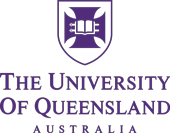I found this article.
If The Conversation has analysed Pentecostalism correctly I can see issues for those in material poverty. Yet my inner feeling draws me to those in spiritual poverty. This is divided into them and us, with us or against us, acceptable or unacceptable in the so called eyes of God (if God had eyes).
I will sit with this for a moment as I go to silence to allow illumination.
The Meek Will Inherit the Earth comes immediately. They are the ones who live where need=want or what is popularly coined ‘poor’. There is no other when Love is centre stage. Love is God, God is Love, God is Truth, Love is Truth. These are the same thing. So when anyone moves from love on the basis of belief they move from what they perceive or label God. God in itself is not the truth as it creates in the mind a single being when the essence of a living intelligence permeates all things and non things. It is creation and created. It is science and faith, all One. As live is creative, expressive, expansive and infinite.
Has God appointed Scott Morrison to lead Australia to the promised land? What was the promise? What land? Or is the state of grace a feeling experienced? Land is owned by no-one in truth it is a gift that brings forth life for all. Land does not give to this one and not that one. Land is abundant when we allow nature to regenerate its bounty. Did God appoint Scott. There are no appointments, only realisations, there are no chosen only those who choose themselves to awaken to love as the only truth we can imagine. What is love, it is unconditional acceptance of what is, it lets go of control and allows as this higher power has its own geometric balance, or you can imagine homeostasis that rebalances the opposites as part of the dynamic. Not unlike magnets – attraction, repulsion creating intense pull or repulsion as the dance of opposites or like. the positive and negative play out the same way. When we are positive we tend to have a centrifugal effect when negative a centripetal effect. This is how energy moves. Emotion is energy in motion. That is when we feel the wide array of emotions we experience the negative and positive of life attracting or repelling. Stillpoint is neutrality which is a place of no thought, rest and infinite potential. It is where what is new emerges. So when this is understood we come back to first principles that we as part of this mental, physical, emotional, spiritual dynamic are creating the life and times we move through. Love simply allows as there is nothing to fear. Fear is false evidence appearing real, it is a dark energy as they put it but again the negative as part of the polarity. If we lean in one direction and head in that direction then we create the so called hell on earth. This does not mean do nothing in respect of climate change or wars as it is all God’s will. This is an incorrect understanding of the higher light. Like nature this power gives, experiences and renews. The climate is reflecting the imbalance in humans impacting nature. We have tried to contain this higher intelligence in ‘words’ without integrating the whole as who we are. When we feel fulfilled we are whole. The Christians call this born again. I call it realisation. When you move in life from a position of the whole, you will rebalance what is out of balance. We are co-creating systems that are not aligned with nature and nature cannot lose. The firs, feminine, disasters that many regard as the end times are the outcome of imbalance. Framing our world in an economics of scarcity within a gender imbalance of patriarchy that views its standing as superior rather than equal (not all but many). Equality is not about social justice it is a natural state of balance, not unlike the equilateral triangle. The strength is inherent in the equal sides in balance. That is why the pyramids were designed in a pyramidal structure. Balance can be translated into fairness, where the so-called bounty of nature is apportioned fairly. In the current economic malaise nature is apportioned unfairly as those with the gold rule the world rather than behaving as stewards. The sense of entitlement emerges from the false belief that God is rewarding them confirming a god given right to rule. This is not accurate the so-called God (I call omni [omnipresent]), like nature allows the imbalance as we learn from life rather than having edicts to control us. Love doesn’t control, it allows. It has no preference as there are no favourites, there is only creation creating. Specialness is the ego seeking to be superior, more important, chosen and powerful. Nature is selfless, yielding, allowing, embracing and giving. That is the energy of this higher light. We all get to choose as that is freedom or what I term free dominion. In my world there is no less than or greater than, just one love big enough for all. I live in a state of gratitude as I am labelled the poor, yet spiritually I feel the abundance beyond words.
So let’s turn to The Conversation’s analysis in our economic world of religion and the state in pursuit of the all powerful.
Five aspects of Pentecostalism that shed light on Scott Morrison’s politics
Prime Minister Scott Morrison began his victory speech on Saturday with the words, “I have always believed in miracles”. This was no mere hyperbole. Morrison appeared to be declaring his belief that God had actively intervened in the political process to bring about his re-election.
Morrison’s Pentecostal Christian faith is at the centre of his understanding of political life. He invited cameras to film him while worshipping at his church, Horizon, in southern Sydney. And in his maiden speech to Parliament in 2008, he described Pentecostal Hillsong Church leader Brian Houston as his “mentor” and himself as standing for “the immutable truths and principles of the Christian faith”.
In Morrison, the marketing man joins the evangelical preacher. When he tells his listeners, “I will burn for you”, this references the Biblical text, “Never let the fire in your heart go out,” (Romans 12.11). And, if he stays true to his church’s Pentecostal doctrine, he presumably believes in a personal Devil “who, by his influence, brought about the downfall of man”.
What then, are the key aspects of Pentecostal belief that will likely shape Morrison’s actions as a re-elected Prime Minister commanding huge authority in his party?
Miracles
Morrison’s Horizon Church is part of the broader Pentecostal movement that emerged in the United States in the early 20th century. That miracles happen is a central tenet of Pentecostalism. As a religion, it sees itself as re-creating the gifts of the Spirit experienced by the earliest Christian worshippers. Along with the working of miracles, these included speaking in tongues and healings. They remain central features of Pentecostal belief and worship today.
Divine providence
Morrison’s mention of an election miracle coheres with the Pentecostal belief in the divine providence. Put simply, this is the belief that, in spite of the apparent chaos in the world, as the old song puts it, “He’s got the whole world in his hands”.
According to Pentecostal theology, all of history – and the future – is in the control of God; from creation, to the Fall of humanity in the Garden of Eden, to the redemption of all in the crucifixion and resurrection of Jesus Christ. In turn, this will lead to the second coming of Christ, the end of the world and the final judgement.
This is why further action on reducing carbon emissions to counter the environmental damage wrought by climate change may have little intellectual purchase with the PM. If the end of the world through climate change is part of God’s providential plan, there is precious little that we need to or can do about it.

Prosperity theology
In keeping with his theology, Morrison appears to see himself as chosen by God to lead us all towards his understanding of the promised land, which as we know means, “If you have a go, you get a go”.
This “have a go” philosophy sits squarely within Pentecostal prosperity theology. This is the view that belief in God leads to material wealth. Salvation too has a connection to material wealth – “Jesus saves those who save”. So the godly become wealthy and the wealthy are godly. And, unfortunately, the ungodly become poor and the poor are ungodly.
This theology aligns perfectly with the neo-liberal economic views espoused by Morrison. The consequence is that it becomes a God-given task to liberate people from reliance on the welfare state.
So there is no sense in Pentecostal economics of a Jesus Christ who was on the side of the poor and the oppressed. Nor is there one of rich men finding it easier to pass through the eyes of needles than to enter the Kingdom of Heaven. On the contrary, God helps those who are able to pull themselves up by their own bootstraps.

Exclusivism
That said, in some ways, Pentecostalism is pretty light on beliefs. Rather, it stresses an immediate personal connection with God that is the exclusive property of those who are saved. This leads to a fairly binary view of the world. There are the saved and the damned, the righteous and the wicked, the godly and the satanic.
In this Pentecostalist exclusivist view, Jesus is the only way to salvation. Only those who have been saved by Jesus (generally those who have had a personal experience of being “born again” which often happens in church spontaneously during worship) have any hope of attaining eternal life in heaven. At its best, it generates a modesty and humility; at its worst a smugness and arrogance.
So only born-again Christians will gain salvation. Muslims, Jews, Buddhists, Hindus, atheists, and non-born-again Christians are doomed to spend an eternity in the torments of hell.
Thus, as the website of the Christian group to which Scott Morrison’s Horizon church belongs puts it, “We believe in the everlasting punishment of the wicked (in the sense of eternal torment) who wilfully reject and despise the love of God manifested in the great sacrifice of his only Son on the cross for their salvation”.

Pietism
In principle, the PM’s faith is “pietistic”. It is about the individual’s personal relationship with God. So faith is focused “upwards” on God in the here and now – and the hereafter. The result is that Pentecostalism is weak on the social implications of its beliefs. Social equity and social justice are very much on the back burner.
So you would not expect from a Pentecostalist like Morrison any progressive views on abortion, womens’ rights, LGBTI issues, immigration, the environment, same sex marriage, and so on.
Pentecostalists are not fundamentalists. Unlike them, they are especially concerned with the direct experience of the Holy Spirit as the key to salvation. But like fundamentalists, they believe in the Bible as the inerrant word of God in matters of ethics, science and history.
Thus, they hold to a social conservatism reinforced by an uncritical approach to the Bible, which reveals everything necessary for salvation. It would be difficult, for example, for a Pentecostalist to reject the Biblical teaching that homosexuals were bound for hell. The Prime Minister recently did so. But only after first evading the question and then through very gritted teeth.


